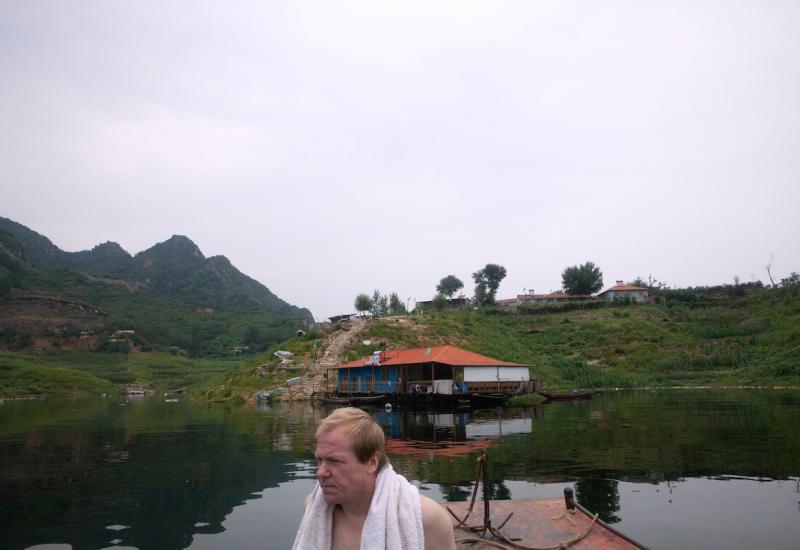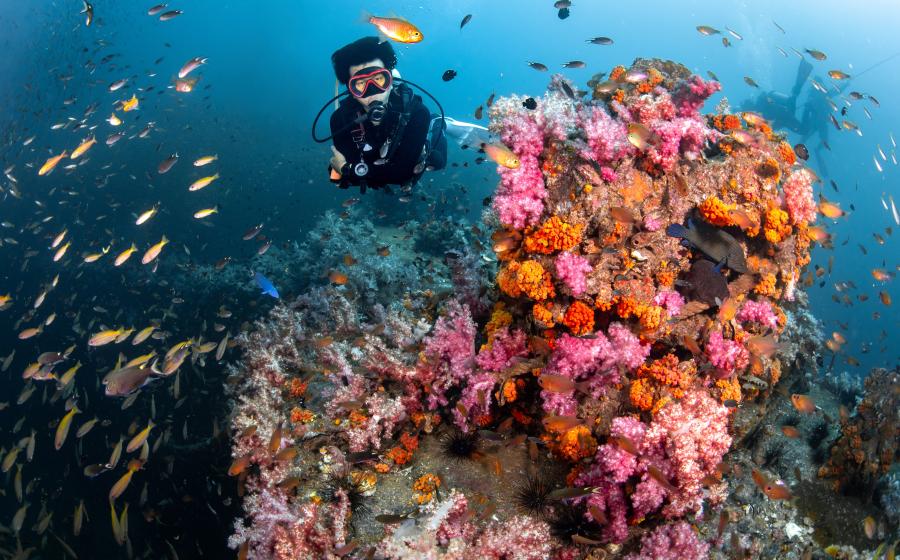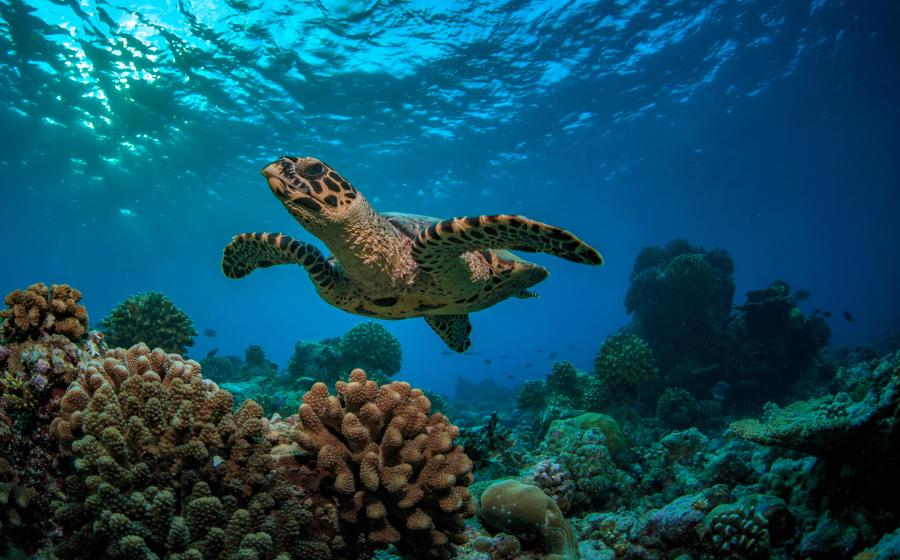The Sea Women of South Korea
The haenyeo, or “sea women,” make their living diving for seafood — without any breathing apparatus. Some 4,500 of these divers remain active on Korea’s Jeju Island, a UNESCO World Heritage site.
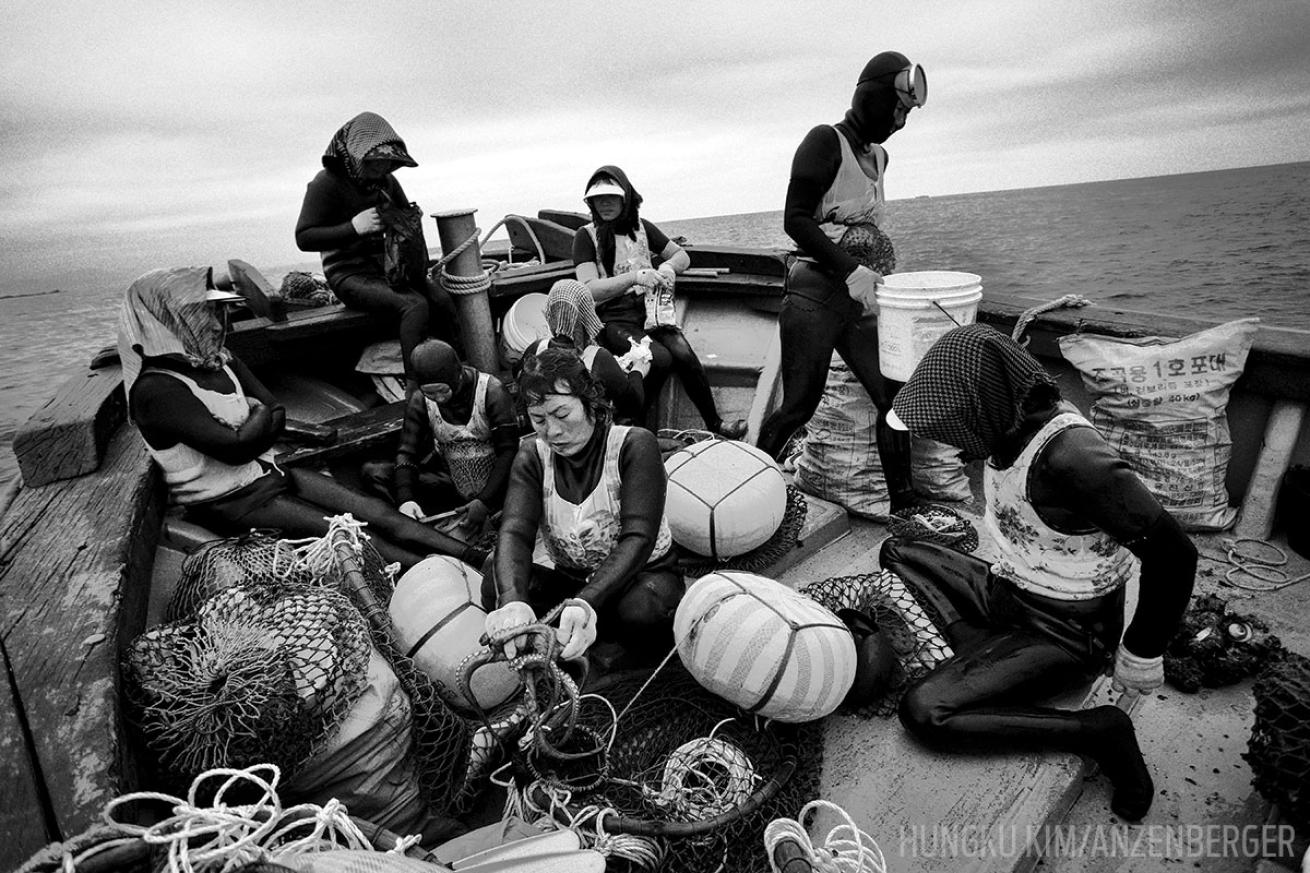
Hungku Kim/AnzenbergerA haenyeo, center, puts an octopus into a net pouch called a mangsari.
In a male-dominated society, the female divers of Jeju carry on their centuries-old tradition to this day as tightknit cooperative groups. They have attracted the attention of researchers for a variety of reasons, including the consistent and systematic nature of their occupation, strong communal spirit, and integration of work and ritual.
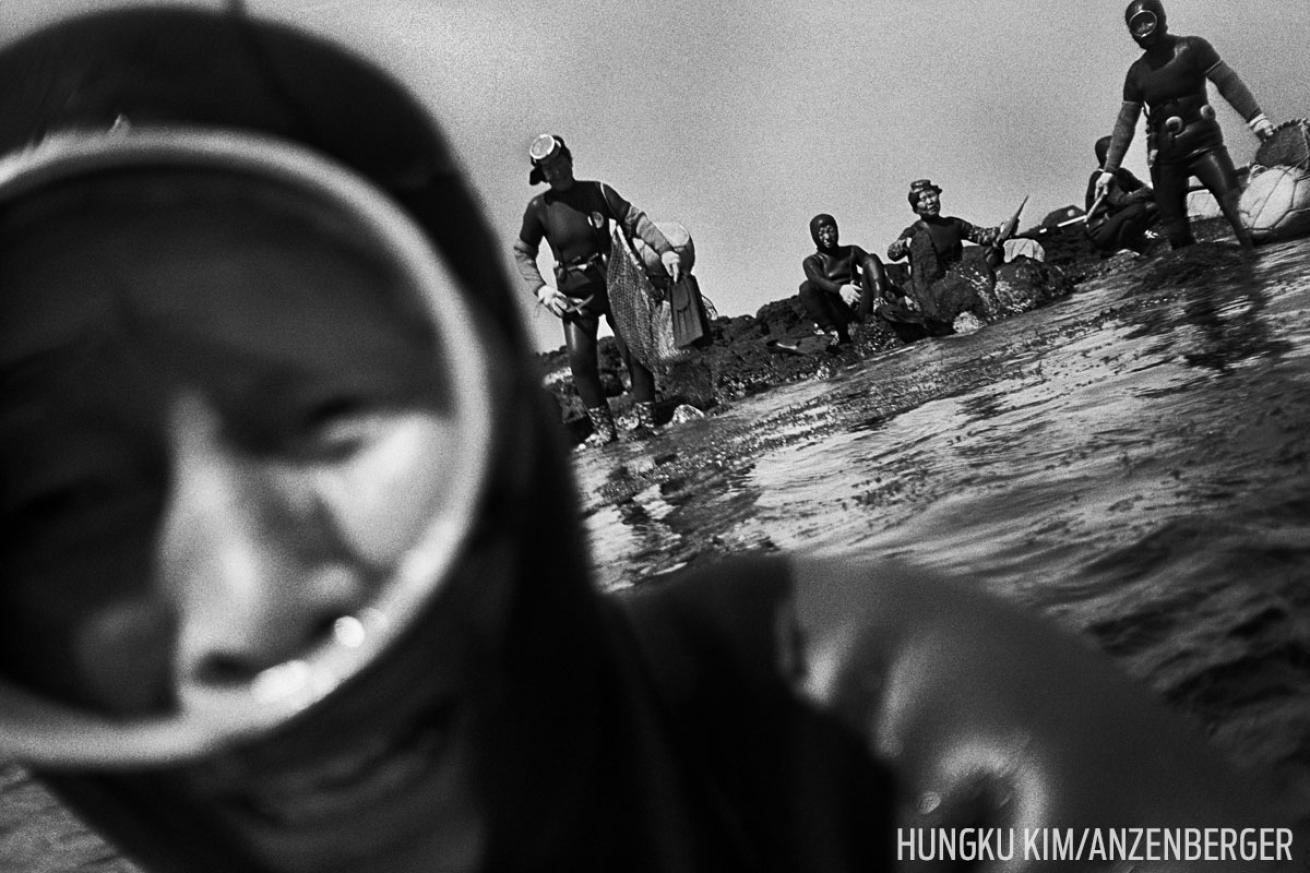
Hungku Kim/AnzenbergerTypically, Haenyeo dive for some 10 to 12 days a month. They dive when the tide is right. As the old saying goes: "They get by somehow or other at low tide, but at high tide they leap into the ocean and get to work." Except at slack tide, when there is no movement in the water, they avoid diving particularly during the spring tides, when tidal currents are the strongest. When the waves are crashing around them, it can be unsafe to dive. In spring tides, two meter waves can have the power of four-meter waves. When the swells are rough, the divers can be tossed about so much that even an abalone right in front of them cannot be caught.
The 16th-century poet Im Je, who visited Jeju, wrote that ”the number of Jeju men who do not return to the island because their boats sink is some 100 per year. For this reason, the women are many but the men are few, and few women living in the countryside have husbands.
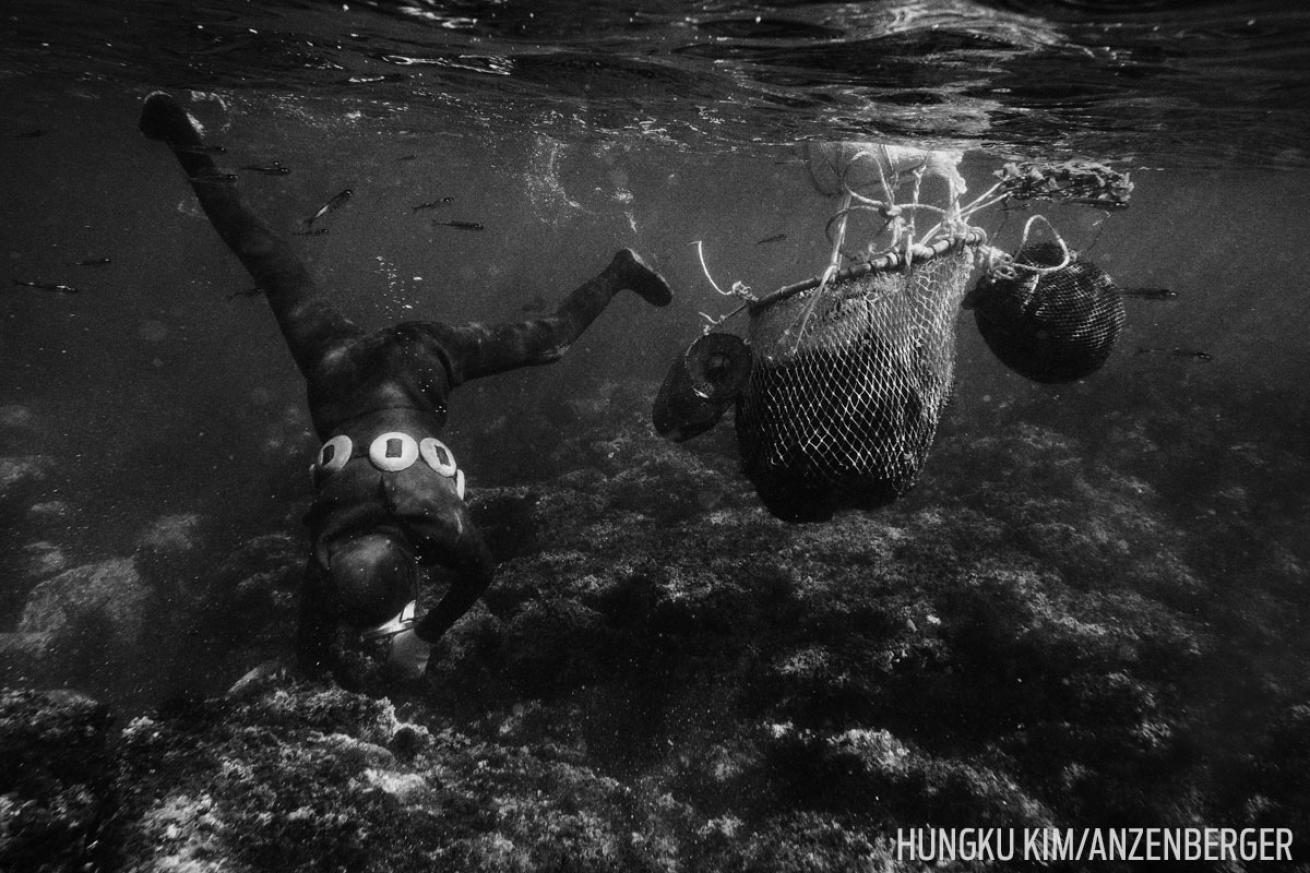
Hungku Kim/AnzenbergerA Haenyeo picking seafood.
The widows had to take on the duties of their men, diving barely clothed into the cold winter seas.” This painful history is a testament to the resilience of women divers, and explains why Jeju is often called the Isle of Women.
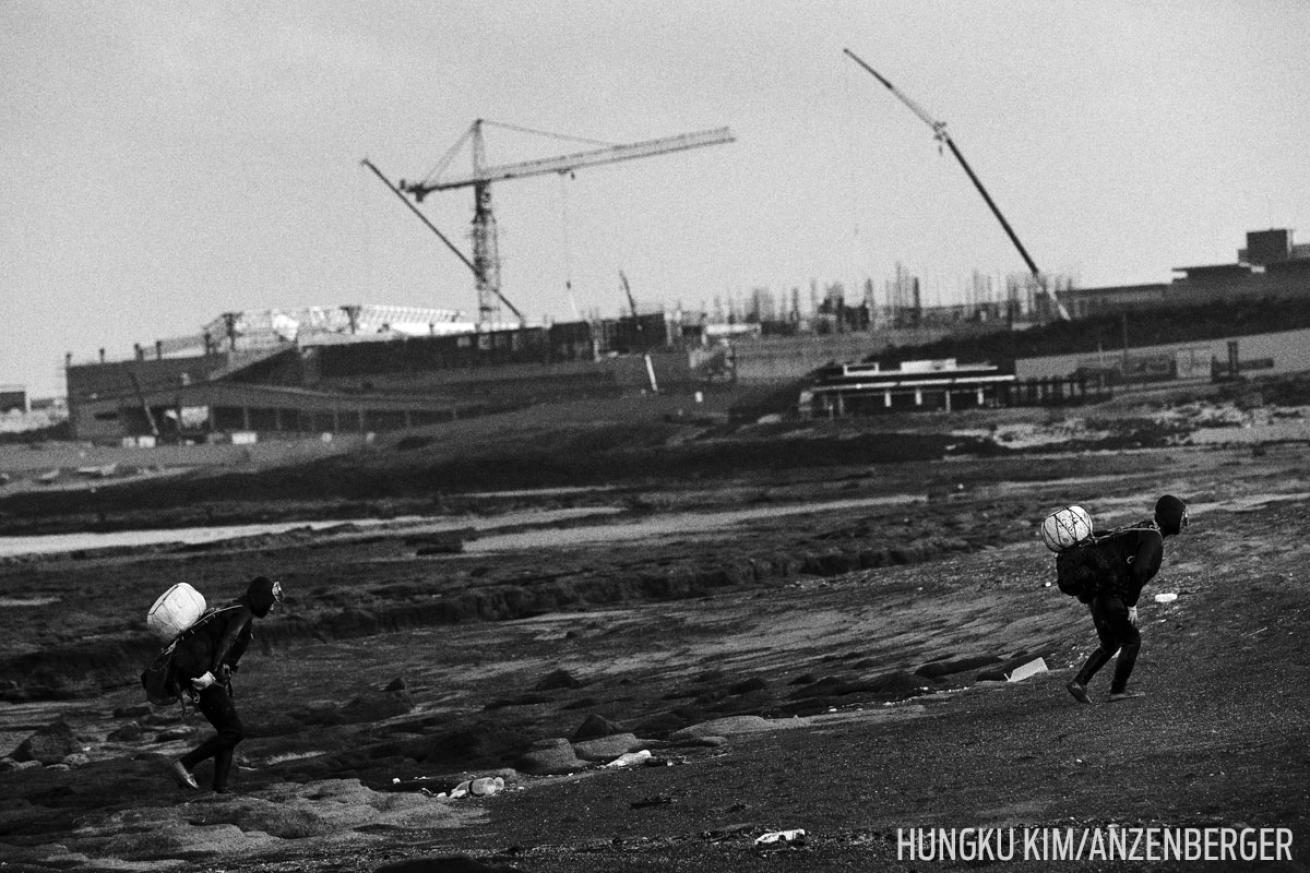
Hungku Kim/AnzenbergerA Haenyeo walking home, holding a Mangsari (net pouch) after diving. Her Mangsari is full with harvested seafood. There are less and less land for traditional villages like Haenyeo's hometown due to the indiscriminate development of land along with pouring influx if Chinese capital into Jeju.



